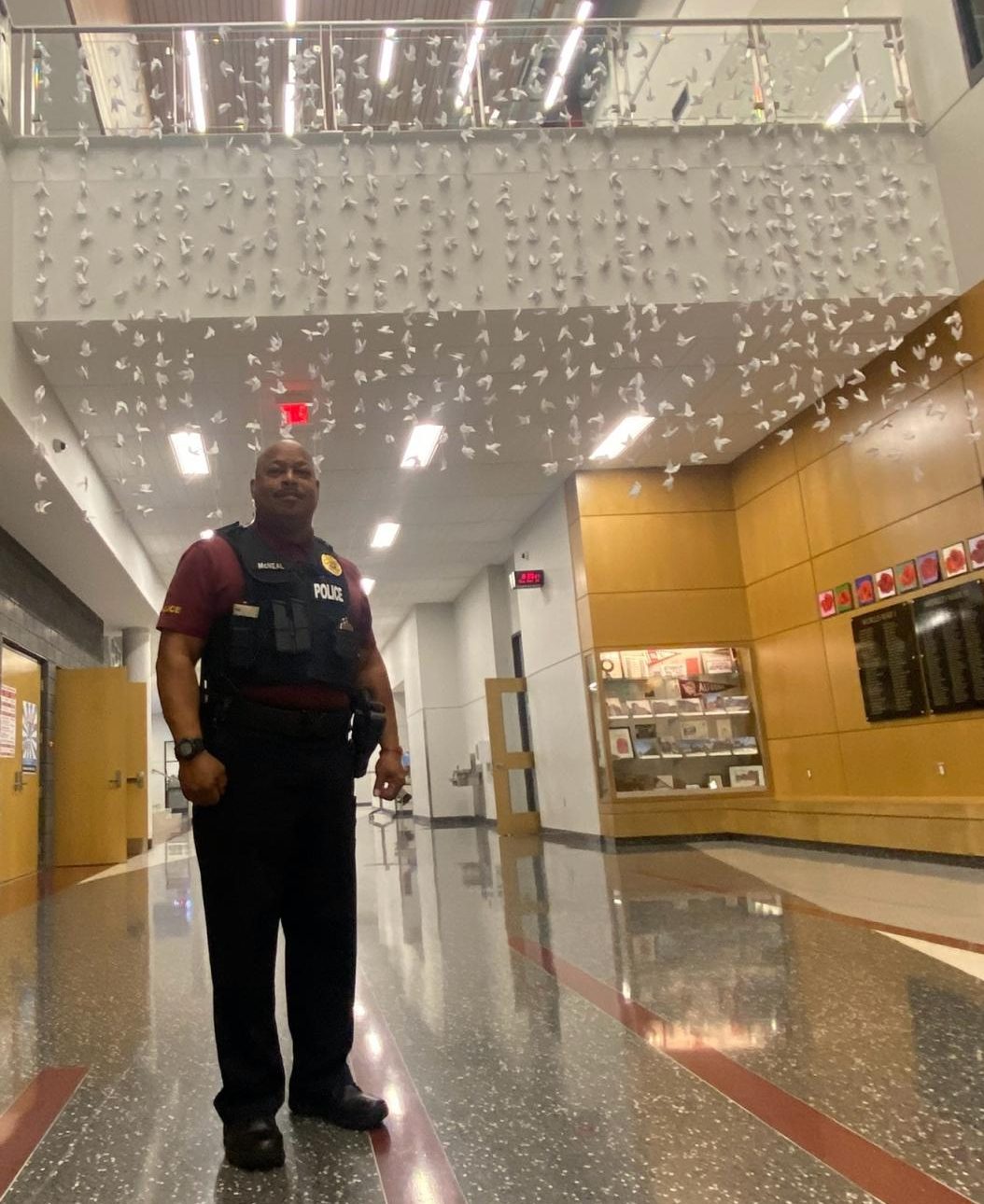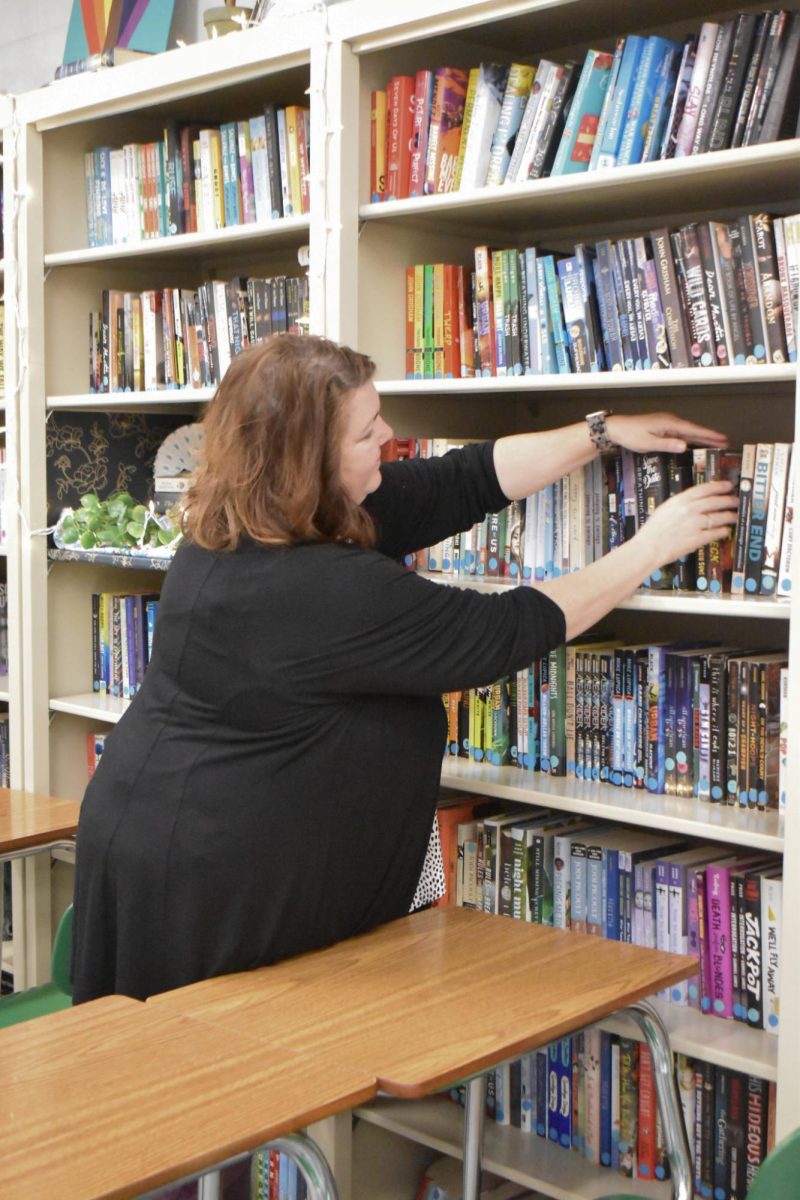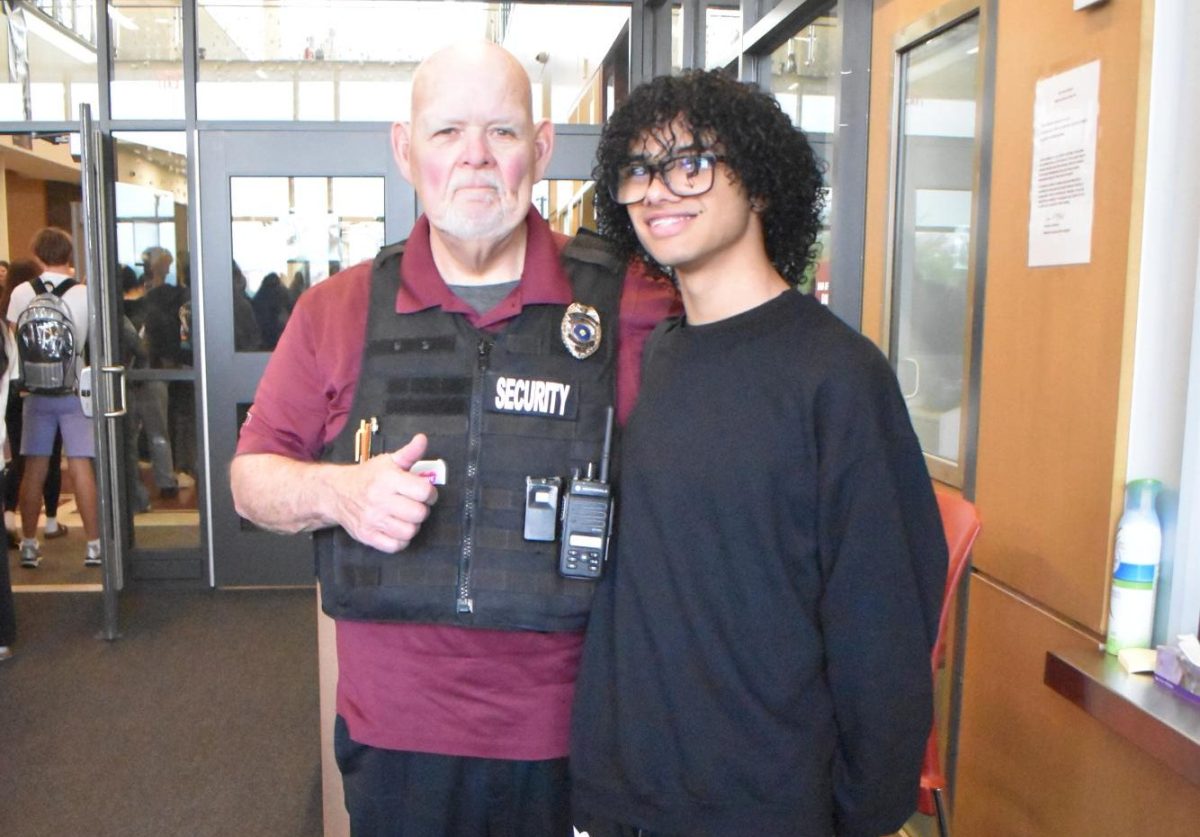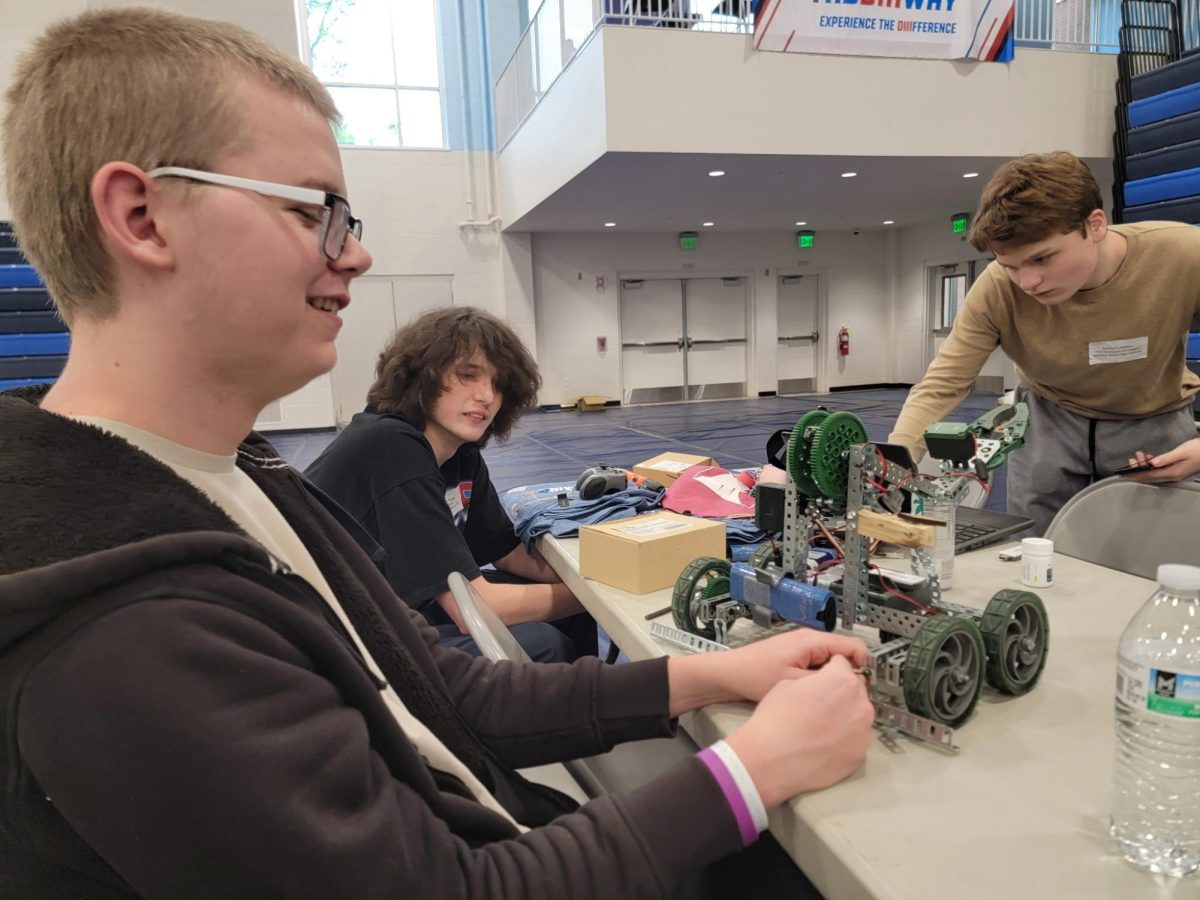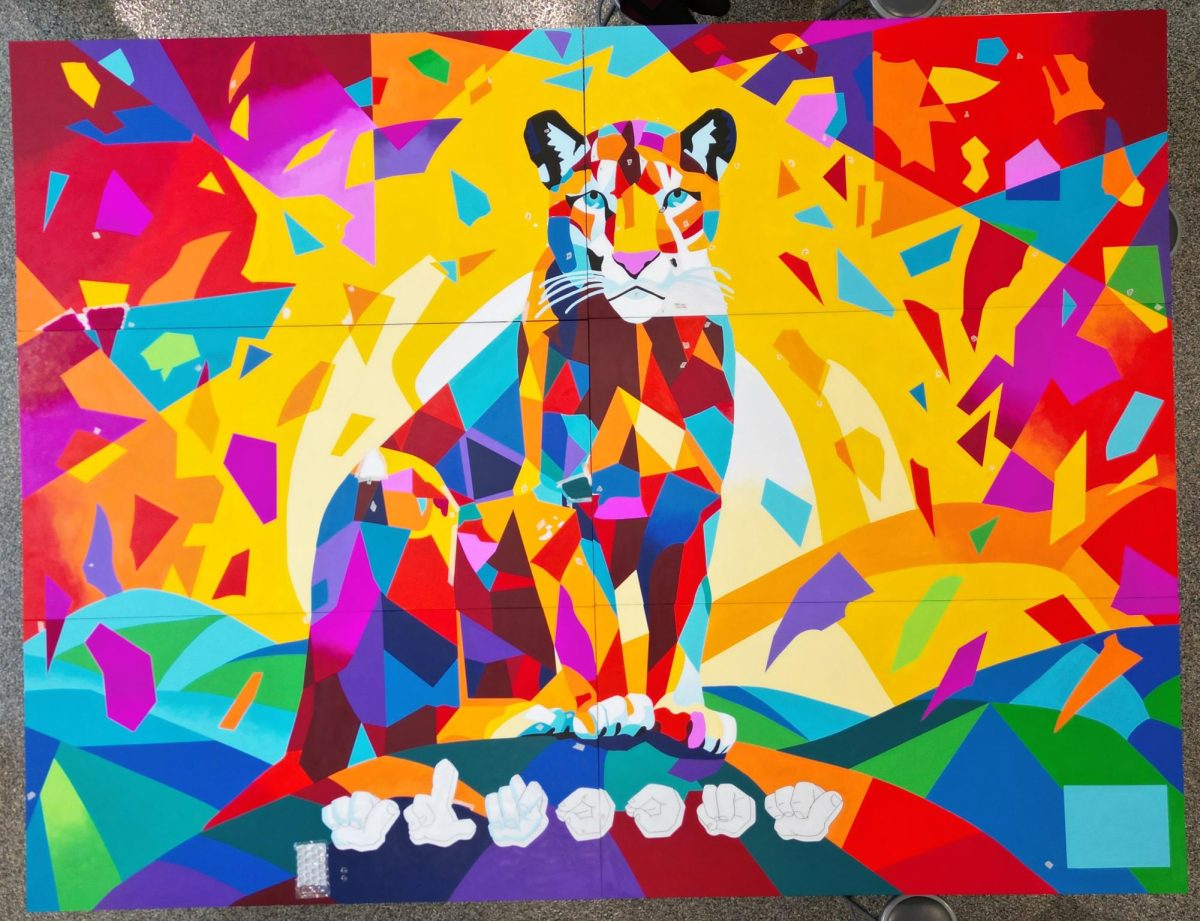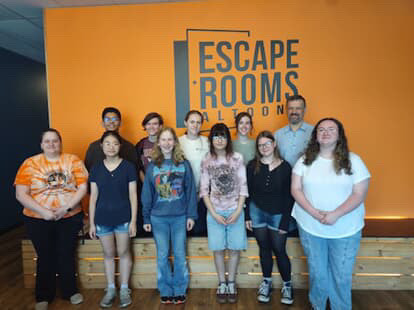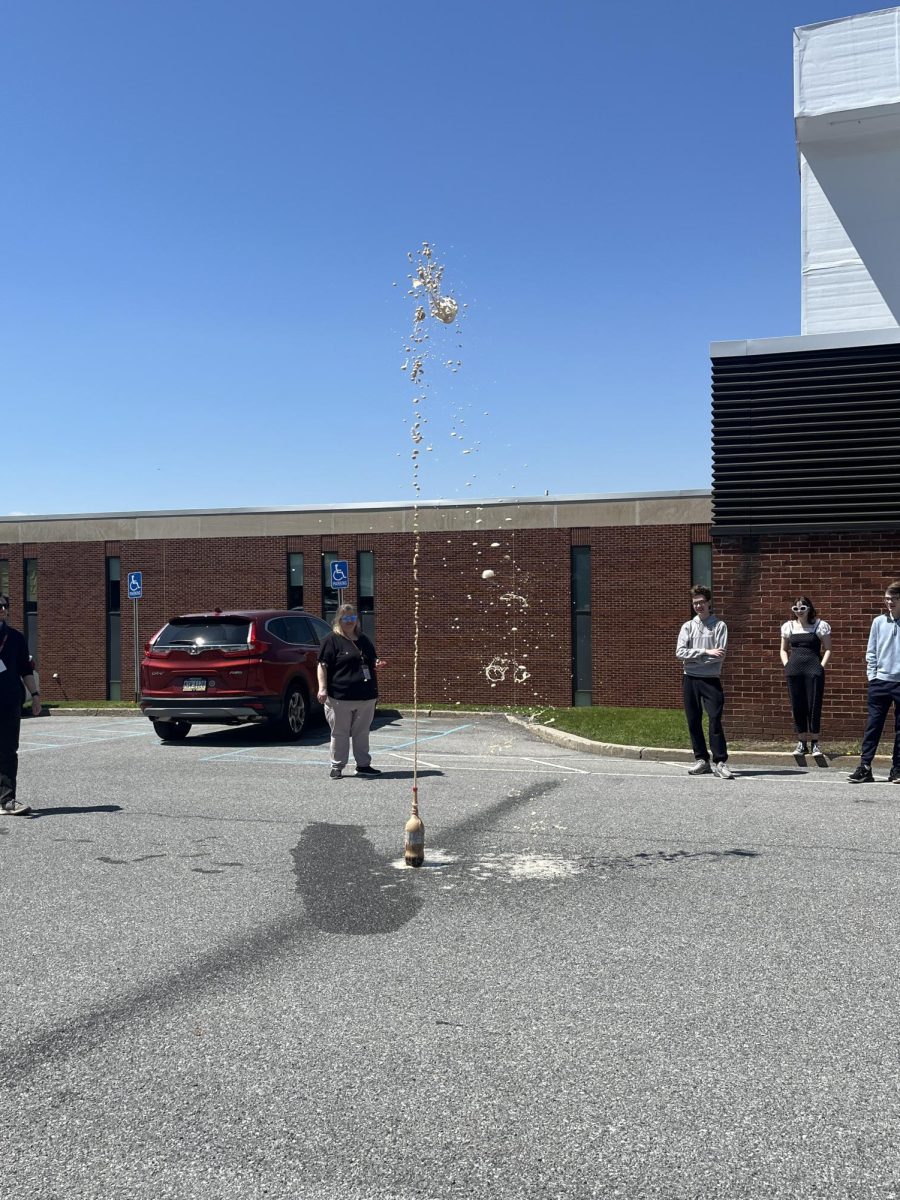Officers Gregory McNeal and Sean Riley have visited two of Joel Gilbert’s drivers’ education classes within the last three weeks. Within those weeks, they have visited the first and seventh periods so far, and are scheduling to visit the rest of the periods before the end of the semester.
“Based on the events that had happened the last month or so, and the two teenagers that were killed in traffic accidents, Mr. Gilbert contacted me, and we discussed that maybe we should have a talk,” McNeal said. “He teaches drivers’ ed, and it was just a perfect opportunity for us to come in here and just try to inform youth that you need to make the right decisions. Mr. Gilbert and I agreed that it would be a good time for that.”
The visits included talking about past experiences with poor choices. McNeal believes the point they are attempting to get across to students is to make better choices.
“That’s what I always told my daughter: you can learn from other people’s success and from their failures,” McNeal said. “You don’t actually have to make that mistake yourself; you can learn from other people’s mistakes, and the stories that I told them are some of the thousands of stories I had when I was a state trooper that I responded to, and that was when people made bad decisions. Anytime that you drink, and then you decide to get behind the wheel or ride with somebody that has been drinking, those are some of the consequences that you may suffer for those choices you made. The stories I told were very tragic, and I told them that, as a Pennsylvania State Trooper, where you basically have one job, you’re here to save people’s lives. When I respond to a scene where somebody has died, and I watch them die, I hear their last words. I feel [like] I failed, that I did not save their life.”
McNeal expressed that, even though he felt he didn’t save their life, when he later investigated, it was more of what the person chose to do. A multitude of choices or even just one can hurt loved ones or ones only got to learn about because of an accident or death.
“The biggest [issue] is that we know you’re going to indulge, you’re going to drink, you’re going to smoke, you’re going to get high, you’re going to do all the things that teenagers do,” McNeal said. “I’m not saying all teenagers, but a lot of teenagers will experiment. They go to parties, they go off to college, they do things. Just make the right decision. Call your parents if you’ve been drinking. They’ll come and get you, and you’ll be home and safe, and then we’ll deal with that other stuff tomorrow. I know people that didn’t go get their children, and they rode with somebody else and they ended up dying, and it changes your life forever as a parent that buries a child. You wake up each day trying to find a reason to keep going on when your child’s been taken from you. That’s the point I try to get across.”
Gilbert and McNeal express the importance of being safe to students, with the hope the students benefit from the lessons.
“Hopefully it gives them an opportunity to think it through a little bit before they make some type of decision to even get into a car with somebody who’s been drinking and driving,” Gilbert said. “A lot of times when things like this happen, you don’t just make one bad choice, you make four or five bad choices, and it leads to something that no one would ever want or want to see. I think that these guys giving these students the experience that they’ve had will at least give them an opportunity to think it through before making these types of decisions.”
McNeal hopes to make students think in advance.
“What I told them was, ‘this might have been your friend or your classmate or your teammate, and, what happens is, you’re sad,’” McNeal said. “‘You’re sad for a couple of weeks or a month, but then your life goes on. Their parents, they’re forever sad. You keep saying you can live your best life, and they’re gone. It was a decision that somebody made that put those things into place, so just make the right decisions. I’m not saying you have to be the perfect child, just make the right decisions.’”
Gilbert believes having the officers coming into the school should keep happening for the students, as it can be useful.
“I think it will help the students think before they make a decision,” Gilbert said. “It’s really helpful. From their experiences, they know a lot, and hopefully we’re able to get them to come into this class and talk to each group twice a year, at least once a year in the fall and then once a year again in the spring.”


